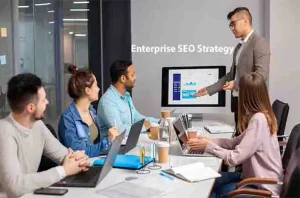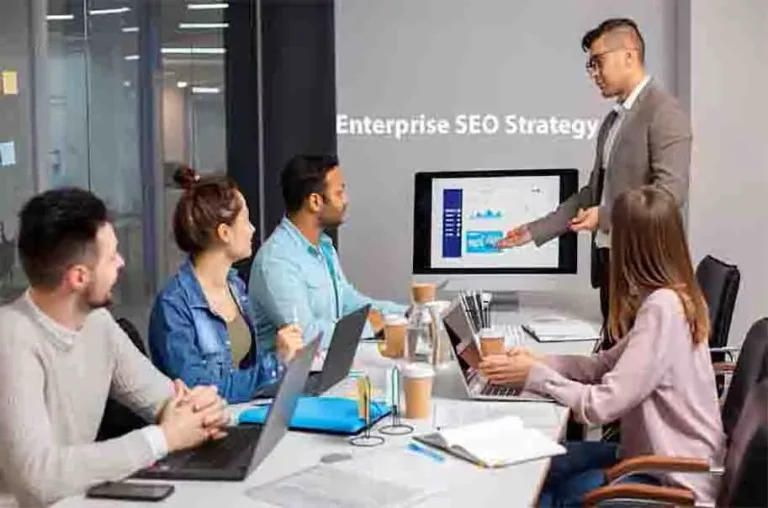Introduction
You might have an incredible brand with mind blowing products or services to solve your customers’ pain points. You have all the industry expertise to keep you ahead of your competitors. None will work without using a strategy (alias lead generation campaign) to attract and nurture your audience (potential customers) and lead them to final conversion that is, turn them into your customers.
Why Does Lead Generation Matter?
According to Ruler Analytics, nurturing leads can increase sales by 50%.
According to HubSpot, businesses that prioritize lead generation can see up to 50% more sales-ready leads.
A company that follows a well thought out lead generation campaign plan and well strategized lead generation campaigns can reduce costs by 33% than those that do not prioritize these efforts. These clearly show why lead generation matters.
Lead generation is especially important for B2B businesses. The best B2B lead generation campaigns bring a strong inflow of potential clients and ensure business growth.
Even though lead generation is enormously useful, effective lead generation is one of the toughest challenges that marketers face.
According to Hubspot, 61% of marketers feel getting traffic and leads is their biggest challenge.
A successful lead generation campaign ensures you have a steady stream of potential customers or leads. Providers of lead generation services in India know how to get leads for business andgenerate genuine customer leads.
What is Nurturing Customer Leads and Why It Matters?
Lead nurturing is the process of developing relationships with your potential customers or leads throughout their buying journey. It is all about engaging and educating leads until they are ready to make a purchase.
This involves sending relevant content, answering questions, and providing value to build trust. The aim is to guide your leads through the sales funnel and turn them into paying customers.
It is like tending a garden- where you ensure each plant gets everything it needs to grow and finally bloom.
What Are the Different Types of Customer Leads?
The best b2b lead generation campaigns identify leads and design the right campaign plans. Here are the four types of leads:
Marketing Qualified Lead (MQL)
Those leads that have responded positively to your lead generation campaign such as, downloading a whitepaper, attending a webinar, or filling out a contact form. Such leads are more likely to convert.
Sales Qualified Lead (SQL)
These leads show a high interest in buying and fit the profile of your ideal customer. Your sales team sees them as having a strong possibility of converting into a paying customer. Such leads show a strong purchase intention and match the characteristics of an ideal customer.
Product Qualified Lead (PQL)
These are leads who have already experienced your product through a free trial or freemium offer and are ready to convert to paying customers.
Service Qualified Lead
Just like the product-qualified lead, these leads express interest in a company’s service offerings through initial consultations or requests for additional information.
What Does B2B Lead Generation Services Include?
B2B lead generation services help companies identify, attract, and convert potential customers into leads. If you are looking to partner with an agency that offers b2b lead generation services, you will be better off having an understanding of the services such agencies offer. Here is a lowdown:
Identify Potential Customers
They use various tools and techniques to find businesses that match your ideal customer profile.
Qualify Leads
They ensure that the leads generated are real and have a genuine interest in your products or services.
Nurture Leads
They engage and inform potential customers through personalized and insightful communications. This way they build relationships and guide the leads through the sales funnel.
Create Content
They create different types of platform-specific valuable content that attracts potential customers to your website or landing pages.
Use Email Marketing Campaign
They use targeted email campaigns to reach out to potential leads and nurture them.
Use Social Media Marketing Campaign
They make good use of social media platforms to engage with potential customers and drive traffic to your website.
SEO (Search Engine Optimization)
They optimize your website to improve its visibility in search engine results to attract more potential leads.
Provide Analytics and Reporting
They track the performance of your lead generation efforts and bring insights to help you make data-driven decisions.
Use Automation Tools
They use the latest AI-powered automation tools to streamline the lead generation process and improve efficiency.
Steps to Generate a Successful Lead Generation Campaign from Scratch
Understand Your Target Audience
For this you need to develop buyer personas that include demographics, interests, and pain points. It helps to tailor your messaging and strategies accurately.
Set Clear Goals
Set specific, measurable objectives for your campaign. For example, the number of leads you want to generate or the target conversion rate. Clear goals provide a roadmap for your campaign efforts.
Also, set measurable metrics or key performance indicators (KPIs) to track the success of your campaigns.
Choose Your Lead Generation Campaigns
Different campaigns suit different business needs. You need to choose the ones that best meet your lead generation objectives. Some popular marketing lead generation campaigns include:
Email Campaigns
Best for nurturing existing leads. Share valuable insights and offers to keep them engaged.
Social Media Campaigns
Use platforms like LinkedIn, X, Facebook and others to reach a wider audience. Create engaging posts and run targeted ads.
Content Marketing
Create valuable and informative content to attract organic traffic and generate leads over time.
Webinars and Events
Hosting informational webinars can draw in potential leads. They also establish your authority in the field.
Identify Platforms
Determine where your target audience spends their time (social media, search engines, email, etc.). Accordingly, you will have to create your platform specific content.
The Multi-Channel approach works the best because a combination of channels helps to maximize reach.
Develop Irresistible Content
Content is the king everywhere, and so is your lead generation campaign content.
Create high-quality resources like blog posts, ebooks, webinars, and infographics that offer value to your audience.
Use compelling headlines and strong CTAs (calls to action) to encourage engagement.
Optimize Landing Pages
Your landing page should focus on conversions because that is where your visitors will land. It should have these elements:
> A clear and hooking headline
> Engaging visuals
> Concise and persuasive copy
> A strong CTA encouraging visitors to take action
A/B Testing can refine your landing pages. It includes testing different designs, headlines, or messages to see which performs best.
Implement SEO Strategies
Identify and use relevant keywords to get organic traffic and also ensure your website content is optimized for search engines.
Track Performance
Use analytics tools to measure the success of your campaign and adjust your strategies based on data and feedback to optimize results.
Conclusion
Building a solid lead generation campaign is all about understanding and connecting with your audience. Creating a successful lead generation campaign takes time and effort, but the benefits are huge. By understanding your audience and nurturing those relationships, you can build a strong foundation for growth. Stay consistent and focused, and you will see meaningful results.







